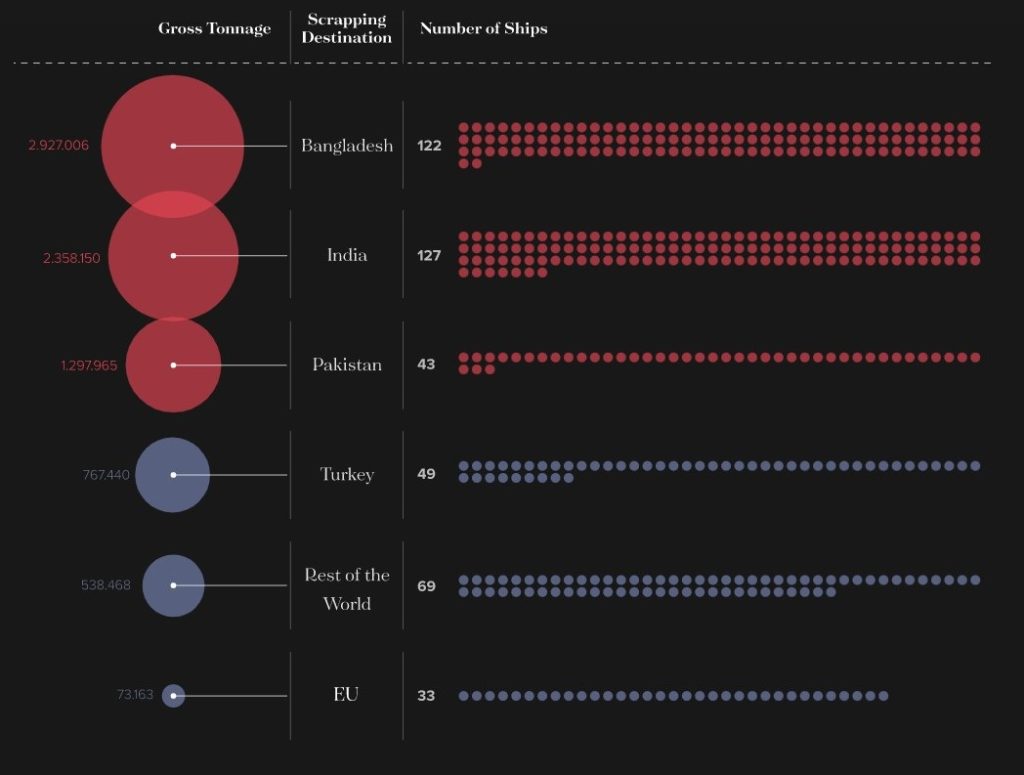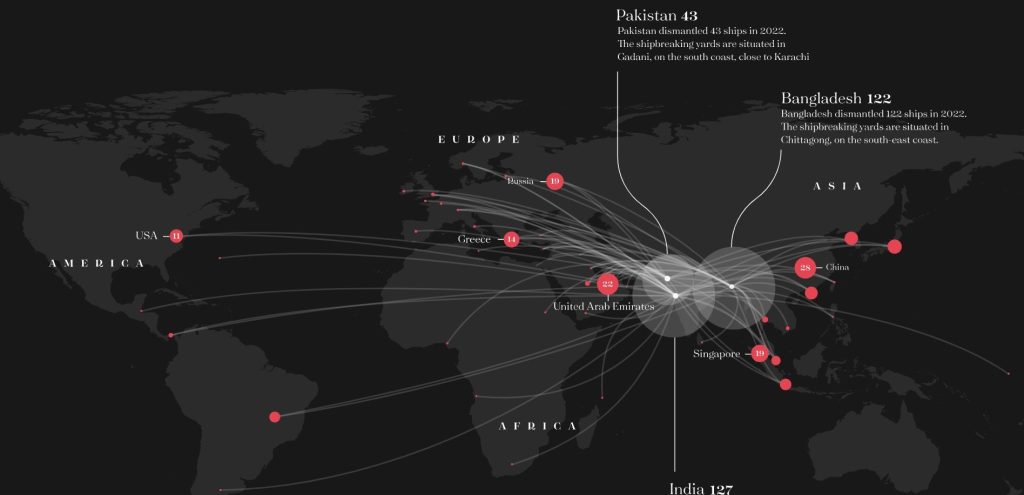According to the NGO Shipbreaking Platform, shipbreaking on the beaches of South Asia continues to cause serious harm to workers and the environment despite plunge in number of ships scrapped.
Based on new data released by the NGO Shipbreaking Platform, 443 ocean-going commercial ships and offshore units were sold for scrapping in 2022.
Of these, 292 large tankers, bulkers, floating platforms, cargo and passenger ships ended up for dirty and dangerous breaking on tidal beaches in Bangladesh, India and Pakistan.
Whilst the South Asian shipbreaking yards experienced the lowest turnover in over a decade, with a significant drop in terms of the number of ships scrapped, they remained the preferred destination for end-of-life vessels, dismantling 80% of the global end-of-life gross tonnage.

The reasons for the plunge in the number of vessels scrapped in 2022 are multiple, with high ocean freight rates that made it profitable to continue operating older vessels and banks’ shortages in providing credits to companies for the purchase of end-of-life assets identified as the main drivers.
Companies have a duty to eliminate the negative impacts that their commercial decisions have on the environment and people. End-of-life vessels are hazardous waste, and taking them apart on tidal beaches is by far the worst industrial practice
said Ingvild Jenssen – Executive Director and Founder – NGO Shipbreaking Platform.
As the NGO also added, in South Asia, workers are exposed to immense risks. “Dangerous working conditions, including fires and falling steel plates, kill or seriously injure numerous workers. Many more are sickened by exposure to toxic fumes and substances that can be found within the ships’ structures.”
What is more, in 2022, at least 10 workers lost their lives and 33 workers suffered injuries when breaking apart vessels on the beach of Chattogram, Bangladesh. Local sources also reported three deaths in Alang, India, and three injuries in Gadani, Pakistan.
The 2022 worst country dumper was China. Chinese owners sold 28 ships for scrapping in South Asia, most of which were beached in Bangladesh. Russia, Singapore, the United Arab Emirates and Greece follow with more than a dozen ships beached each.
Continuing, in 2022, a total of 49 ships were dismantled in Aliağa, Turkey, a site where currently six EU-approved ship recycling yards are located.

Civil society organisations have raised concerns over the ship recycling operations in the region and massively mobilised over the summer to stop the import of the toxic-laden aircraft carrier SÃO PAULO.
They flag serious breaches of national laws related to environmental permits, pollution, occupational health and safety and waste management in the sector.
In addition, two facilities, Şimşekler and Işıksan, were removed from the EU List in 2022 due to their failure to comply with the requirements set in the EU Ship Recycling Regulation. Furthermore, recently published audit reports of two other yards reveal several problems.
Looking ahead, the number of ships that will need to be dismantled is expected to surge. At the same time, the growing focus on circularity and the urgent need to reduce carbon emissions provide opportunities to transform the ship recycling sector
the NGO Shipbreaking Platform concluded.































































